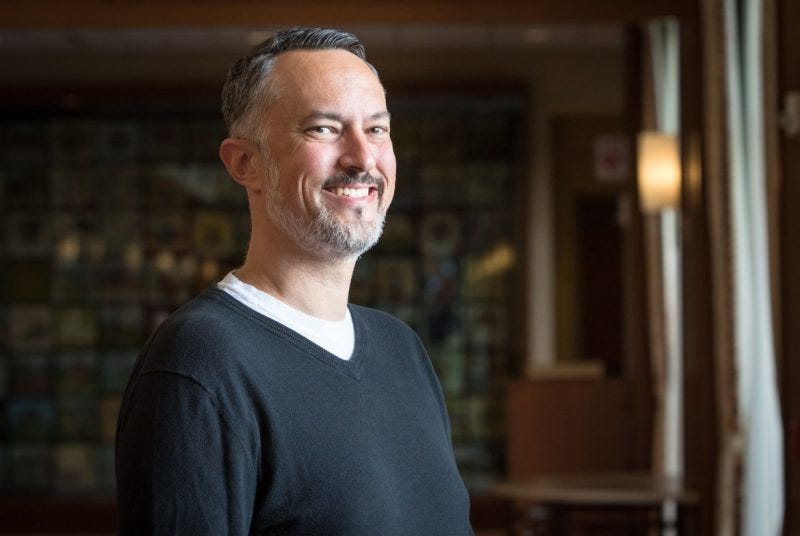News broke yesterday that Pope Francis had passed away at the age of 88. For those of you grieving his loss, I extend to you my most sincere condolences.
I thought perhaps the best way to mark the moment was to have a discussion with Dr. Matt Gabriele, one of the world’s foremost experts in religion and violence, as well as nostalgia and apocalypse, focused on the European Middle Ages and how that period has been remembered by subsequent generations.
Matt and I talked tonight about the role of the Pope, how it came to be, Francis’ legacy, and what comes next. In the clip below, Matt talks to how conservatives within the religion rebelled at times to Francis’ progressive moves:
And for you history lovers, Matt gave us an intro to the influential pontiffs in history, speaking here about Leo IX, the unseen reformer who is sometimes overshadowed by his successors:
About our guest:
Matthew Gabriele is a professor of medieval studies in the Department of Religion and Culture at Virginia Tech. His research and teaching generally explore religion, violence, nostalgia, and apocalypse, whether manifested in the Middle Ages or the modern world. This includes events and ideas such as the Crusades, the so-called “Terrors of the Year 1000,” and medieval religious and political life. He has also presented and published on modern medievalism, such as recent white supremacist appropriations of the Middle Ages and pop culture phenomena like Game of Thrones and the video game Dragon Age.
Gabriele has published numerous academic articles and several books, including An Empire of Memory: The Legend of Charlemagne, the Franks, and Jerusalem before the First Crusade, which received the Southeastern Medieval Association’s Best First Book in 2013. He has also presented at dozens of national and international conferences and has given invited talks at Harvard, Princeton, Georgetown, the University of California-Berkeley, the University of Wisconsin-Madison, the University of Virginia, the University of Tennessee-Knoxville, and Westfälische Wilhelms Üniversität-Münster.
Gabriele is a regular contributor to Forbes.com; his public writing has appeared in such places as The Washington Post, The Guardian, The Daily Beast, Slate, and The Roanoke Times; and interviews with him have aired locally, nationally, and internationally. He completed a bachelor’s degree in history at the University of Delaware and a master’s degree and a doctorate in medieval history at the University of California, Berkeley.
Find the episode on Apple Podcasts and Spotify below:
Thanks for being here and thanks for listening. If you’d like to help us grow into a national voice you can do so by pledging a monthly subscription at the button below.





That incident in 2019 - how hate-filled and heartbreaking. Thank you for having this discussion with Dr. Gabriele.
OK, just finished listening. So helpful on many counts. Did not know all that about the 4th Lateran Council - or the simultaneous decree concerning Holy War against heretics *with* the decrees about baptism as both necessary for salvation and open to everyone. That seems complicated, but basically makes the Church even more political - a major player in the temporal realm, which requires some sort of alliance of faith with the sword. (Not too dissimilar to arguments I hear in my own circles about the "need" for Christian nationalism).
To me, the tension between faith and violence is THE main issue in church history (and I assume many other religious traditions as well). As a Vet and a Pastor who has served in both worlds, I have strong opinions about it. (One reason HATM *has* to do The Mission some time!)
It was also helpful hearing Matt's perspective on Vat II and Francis. I'm a Presbyterian pastor in Blacksburg, and one day had a bunch of Catholic students show up to a Bible Study I lead for undergrads at VT. Long story short, we ended up spending a semester in ecumenical dialog together - it was a fantastic time, and I learned a ton from them, but pretty hard to imagine that happening pre-Vatican 2, I assume. (As an aside, it was all manner of Catholics, all super sincere, kind kids, but a few of whom were in favor of - at least in theory - of establishing a Catholic monarchy in the US where even other Christian denominations would be given second class status. Catholicism is a large, diverse group, as you all said!
Finally, only one complaint about this podcast - unless I missed it, no mention of the movie about Francis and Benedict - Two Popes with Jonathan Price and Anthony Hopkins. Great movie, so maybe you all did give it a shout out, and I just missed it. Anyway, thanks for this episode!